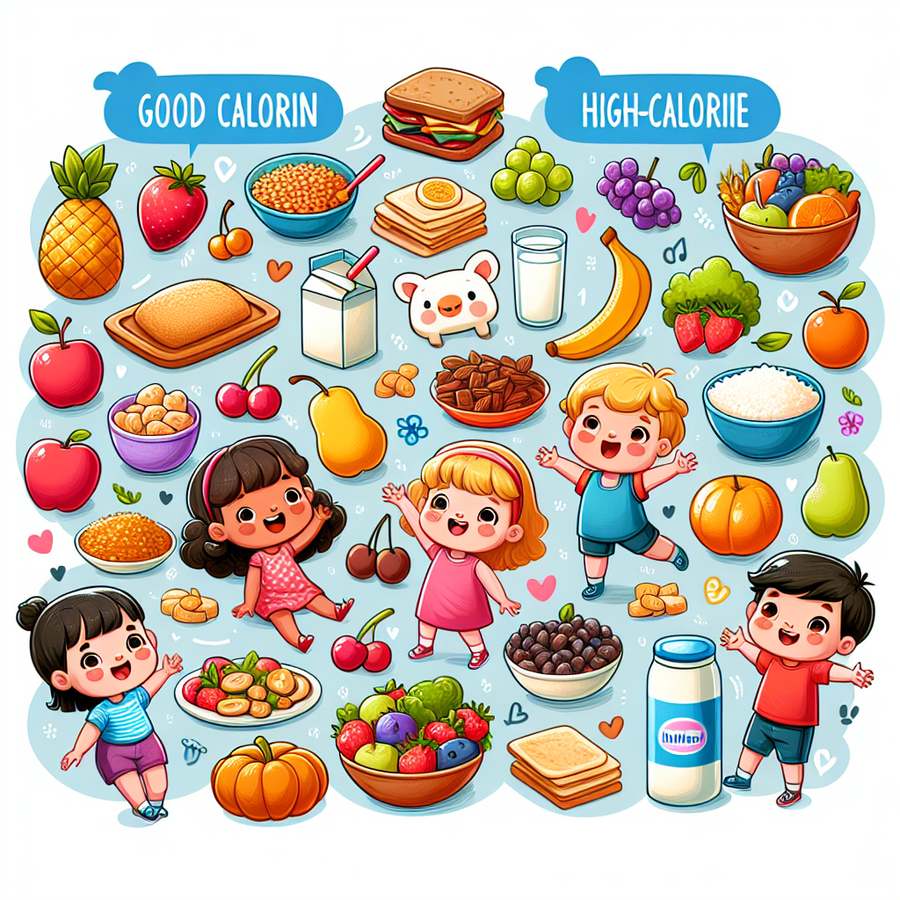Finding the best high-calorie foods for underweight toddlers can be a game-changer for parents concerned about their child’s weight gain and nutritional intake. Ensuring that your toddler consumes enough calories and nutrients is crucial for their development and overall health. This article will guide you through selecting high-calorie foods that are both nutritious and appealing to young palates.
Why Focus on High-Calorie Foods for Underweight Toddlers?
Underweight toddlers may require a higher calorie intake to meet their developmental needs and support healthy growth. High-calorie foods, when chosen wisely, can provide the energy and nutrients necessary for underweight toddlers to catch up on weight gain in a healthy manner. It’s important to focus on nutrient-dense options that contribute to overall well-being.
When selecting high-calorie foods, it’s essential to prioritize those rich in vitamins, minerals, healthy fats, and proteins. This approach ensures that your toddler not only gains weight but also receives the nutritional building blocks needed for optimal development. Let’s explore some of the best high-calorie foods for underweight toddlers.
Best High-Calorie Foods for Underweight Toddlers
Incorporating high-calorie foods into your toddler’s diet can be a delicate balance. You want to ensure they are getting sufficient calories without compromising on nutrition. Here are some nutrient-rich, high-calorie options that are perfect for underweight toddlers:
- Full-fat dairy products, such as yogurt, cheese, and milk, offer a good mix of calories, calcium, and protein.
- Avocado is high in healthy fats and calories, making it an excellent food for weight gain and brain development.
- Nut butters provide a calorie-dense source of healthy fats and proteins. They can be spread on whole-grain bread or mixed into smoothies.
- Olive oil and other healthy oils can be added to cooked dishes for extra calories without compromising the nutritional value.
- Whole grains, like oats and quinoa, are not only high in calories but also provide fiber, vitamins, and minerals.
- Meat and fish are rich in protein and essential fatty acids, important for muscle and brain development.
Remember, while introducing high-calorie foods, it’s crucial to monitor your toddler’s reaction to new foods, especially if they have a history of allergies. For detailed guidance on introducing solid foods to babies with allergies, consider reading this article.
Creative Ways to Incorporate High-Calorie Foods into Your Toddler’s Diet
Getting underweight toddlers to consume more calories can be challenging, but with a little creativity, you can make nutrient-dense meals appealing. Here are some ideas:
- Add grated cheese to soups, scrambled eggs, or pasta dishes for extra calories and a flavor boost.
- Make smoothies with full-fat yogurt, bananas, nut butter, and a drizzle of honey for a calorie-rich, delicious treat. Check out smoothie recipes for toddlers for inspiration.
- Incorporate avocado into sandwiches, salads, or as a side dish to meals.
- Use olive oil in cooking or as a dressing for vegetables to add healthy fats and calories.
- Create a trail mix with nuts, seeds, and dried fruits for a nutrient-packed snack.
These strategies not only increase calorie intake but also make meals more enjoyable for your toddler, encouraging them to eat more without pressure.
For toddlers with specific dietary needs or allergies, it’s important to adapt these suggestions accordingly. Learn more about managing food allergies in toddlers by exploring this comprehensive guide.
Monitoring Progress and Adjusting as Needed
As you introduce high-calorie foods into your underweight toddler’s diet, it’s vital to monitor their progress and adjust their diet as needed. Regular check-ups with a pediatrician can help track weight gain and ensure your toddler is developing healthily.
Remember, every toddler is unique, and what works for one may not work for another. Stay patient and keep experimenting with different foods and preparation methods to find what your toddler enjoys and responds to best.
In conclusion, selecting the best high-calorie foods for underweight toddlers involves focusing on nutrient-dense options that provide the necessary calories for healthy weight gain. By incorporating these foods into your toddler’s diet creatively and monitoring their progress, you can support their growth and development effectively. For more tips on toddler nutrition, consider exploring articles on BabyWhysAndHows.com.













